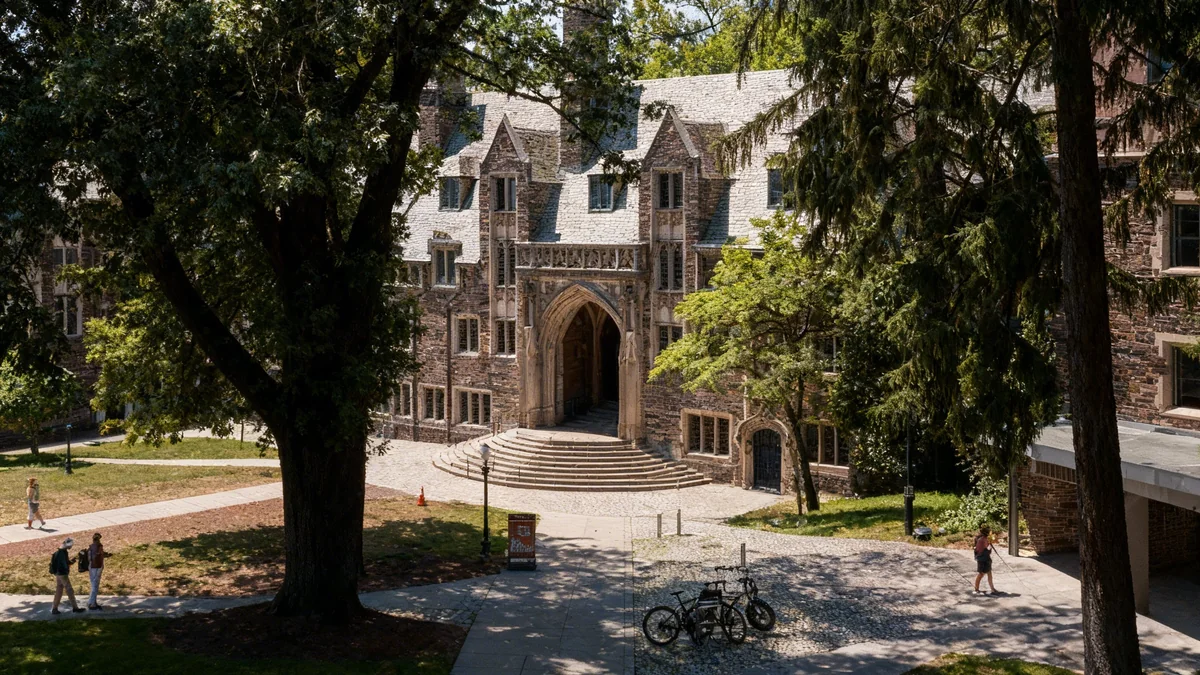A lecture on Israeli theater at Michigan State University became the center of a campus debate after the student government passed a resolution demanding its cancellation. The Associated Students of Michigan State University (ASMSU) cited the speaker's past mandatory military service as a reason for the ban, prompting discussions on academic freedom, discrimination, and civil discourse on campus.
Key Takeaways
- MSU's student government, ASMSU, passed a resolution calling for the cancellation of a lecture by Israeli actor and scholar Roy Horovitz.
- The primary objection was Horovitz's mandatory military service in the Israel Defense Forces (IDF), which the resolution linked to accusations of genocide.
- Event organizers and members of the Jewish community at MSU described the resolution as a form of discrimination based on national origin and a threat to academic freedom.
- Despite the resolution and a student-led petition, the lecture on Israeli theater took place as scheduled without interruption.
Student Government Passes Cancellation Bill
On the evening of September 21, 2025, the Associated Students of Michigan State University passed a bill advocating for the cancellation of an upcoming campus event. The lecture, featuring Israeli scholar Roy Horovitz, was scheduled for the following day and focused on the history and art of Israeli theater.
The resolution argued that by hosting Horovitz, the university was effectively platforming an individual "affiliated with ICJ-condemned military bodies." This was a direct reference to Horovitz's compulsory military service, a requirement for most Jewish Israeli citizens after high school.
The bill claimed the event risked retraumatizing Palestinian and Arab students and would "normalize relations with violent states."
The Bill's Fast-Tracked Approval
The legislation was introduced and passed in a single night. Aesha Zakaria, a senior representing the Asian Pacific American Student Organization, drafted the bill just hours before the ASMSU meeting. She told The State News she felt compelled to act after learning about the event, stating it contradicted years of advocacy by student groups.
Zakaria's research led her to a biographical note where Horovitz mentioned completing his military service. "That makes him complicit in the genocide that has been happening in Palestine for the past several decades," she said. While acknowledging the service was mandatory, she argued it "does not excuse complicity."
To ensure a vote before the event, the bill's sponsors used a procedural move to suspend normal rules and bring the legislation directly to the floor. The final vote was 14 in favor, five abstaining, and one against.
Mandatory Conscription in Israel
Military service in the Israel Defense Forces (IDF) is compulsory for the majority of Israeli citizens over the age of 18. Jewish men are typically required to serve for 32 months, and women for 24 months. This legal requirement means a large portion of the Israeli population has served in the military.
Organizers Face Pressure Campaign
In the days leading up to the vote, event organizers faced a coordinated effort to shut down the lecture. Professor Yael Aronoff, director of the Michael and Elaine Serling Institute for Jewish Studies and Modern Israel, reported receiving a flood of emails demanding she cancel Horovitz's appearance.
Aronoff noted that many of the emails were nearly identical in language and originated from addresses outside of MSU, including from individuals at Wayne State University and the University of Michigan. "The inundation was itself curious," she said, adding that her LinkedIn profile also saw an unusual surge in views.
Similar messages were sent to the Department of Theatre chair, the dean, and the provost.
A Student Petition Circulates
Alongside the emails, a petition was circulated among student groups. The document, marked "urgent," called on MSU to cancel the event. It argued that featuring a former IDF member without acknowledging "Palestinian suffering" was an affront to university values and "risks normalizing and sanitizing a state apparatus currently under global scrutiny."
The petition also demanded that any programming on Israeli or Palestinian culture must be "balanced." Aronoff found this frustrating, noting the Serling Institute had hosted several Palestinian speakers in recent years and had an upcoming event featuring both an Israeli and a Palestinian speaker. "But it also, of course, doesn’t mean that every single one of our events is going to feature Palestinians," she said.
Debate on Campus Freedom and Discrimination
The ASMSU resolution and the surrounding campaign sparked a strong reaction from some members of the MSU community, who saw it as an attack on academic freedom and an act of discrimination.
"Given that Israeli law requires the majority of its citizens to serve in the military, the bill’s logic would suggest that, to ASMSU, most Israelis aren’t allowed to speak at MSU. That constitutes discrimination based on national origin."
Vladimir Shpunt, the Jewish Student Union (JSU) representative, was the sole vote against the bill in the ASMSU general assembly. He learned of the bill just an hour before the meeting and had only minutes to prepare a response.
During the debate, Shpunt argued the bill singled out a Jewish and Israeli artist speaking about culture, not politics. He contrasted the situation with a recent Palestinian art exhibit at the Eli-Broad Art Museum, which he said Jewish students did not protest. "Yet today you are asked to condemn a Jewish Voice before he even speaks," Shpunt stated. "That is blatant antisemitism."
University and ASMSU Leadership Response
MSU spokesperson Emily Guerrant said the university does not take positions on student government bills but is "working with the groups involved." ASMSU President Kathryn Harding declined interviews but provided a written statement saying the bill aimed to address the "perceived tone-deaf nature" of the event for some students.
The Lecture Proceeds Uninterrupted
Despite the controversy, the lecture took place as planned on Friday afternoon in a Wells Hall conference room. The event proceeded without any protests or interruptions. Roy Horovitz delivered his talk on the evolution of Israeli theater to a small audience of students and faculty.
During his presentation, Horovitz briefly addressed the political situation. "We navigate through an ongoing, harrowing, situation," he said. "War — terrible government from our side as well. I won't hide my opinions. We are really facing some harsh reality, both us and our neighbors." He added that his lecture aimed to show that Israeli artists have voices separate from their government.
When asked about the controversy after the event, Horovitz emphasized that he came as an artist to foster dialogue. "People aren’t representatives of their governments," he said. "Coming here, I would have taken everybody as a Trumpist. I know it's not the situation."
Yore Kedem, a Hebrew Studies Professor at MSU who also completed mandatory service in Israel, expressed his disappointment with the attempt to cancel the event. He argued that holding individuals accountable for the actions of a government they may not support is "preposterous."
"I am Israeli, and a very significant part of my identity is Israeli," Kedem said. "But is that a good enough reason to cancel me? If that's a good enough reason to cancel me, then there's no other way to call it but antisemitism and racism."





